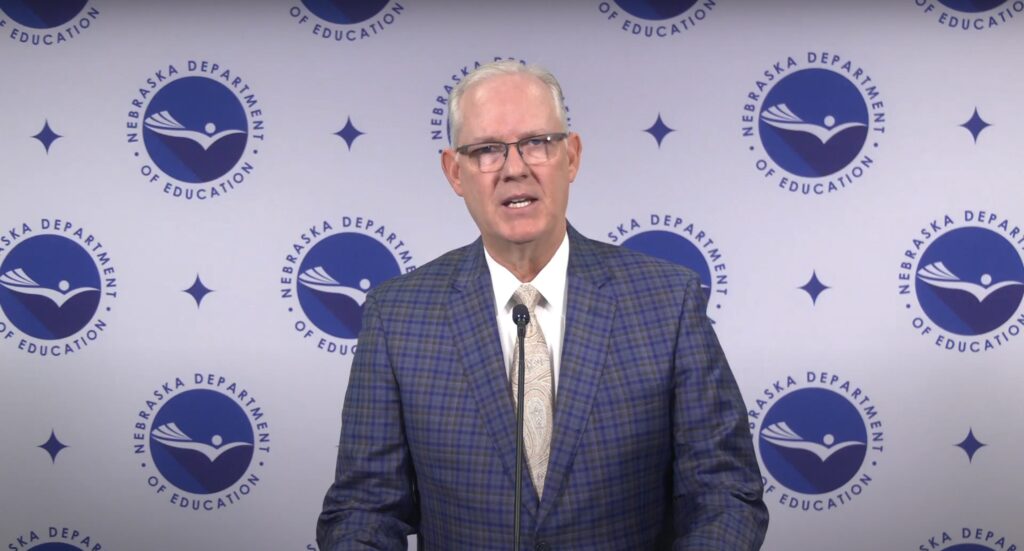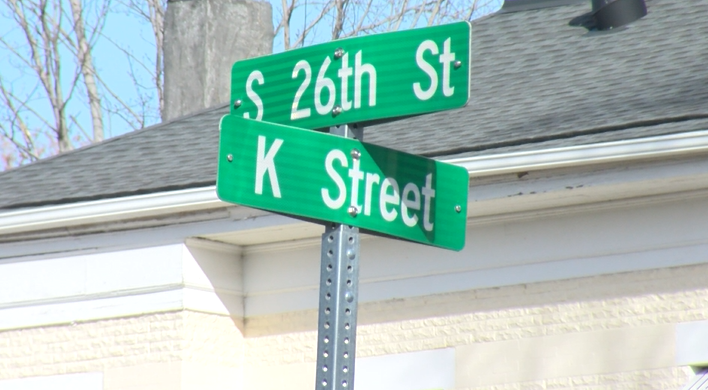Nebraska student test scores appear to rebound after COVID-19 pandemic
Proficiency scores rise double digits, past pre-pandemic levels, as state education commissioner sets sights on further improvement

LINCOLN, NEB. (Nebraska Examiner) — The percentage of Nebraska students who tested proficient in English language arts and math appears to be rebounding after a drop during the COVID-19 pandemic.
According to data from the Nebraska Department of Education, released Wednesday, the percentage of students in grades 3-8 who tested proficient in English language arts or math rose by double digits compared to last year.
In 2022, 47% of students were proficient across statewide tests in English language arts, while 46% of students were proficient in math. For the most recent school year, those proficient in English language arts rose to 58% and students proficient in math rose to 61%.
Science proficiency scores, which are a baseline for tests administered to fifth and eighth graders, also showed improvement, rising from 66% last year to 70% for the 2022-23 school year.
The results surpass pre-pandemic proficiency scores in all three areas.
“While Nebraska’s statewide assessments showed student and school growth and improvement, it also showcased the need for focused efforts in several areas,” Nebraska Education Commissioner Brian Maher said at a Wednesday news conference.
High schoolers were 46% proficient in English language arts, 42% proficient in math and 49% proficient in science, based on ACT scores taken largely by juniors. English scores held steady, while proficiency in math dropped 2% and science improved 1%.
New English language arts standards were approved in September 2021, Maher said, and were tested for the first time in 2023. He said this leads to new baseline scores and better reflects student achievement when compared to student peers across the state and nationwide.
‘Prepared for life after school’
Maher said that he is pleased by the results and that he hopes to build on the momentum and “really help teachers teach.”
“Because, as everybody truly knows, that’s where the magic happens in education,” he added.
Areas in need of improvement, Maher noted, include:
- Students with disabilities, 27% of whom are proficient in English language arts and 29% proficient in math.
- Students who are economically disadvantaged and qualified for free or reduced lunch, 43% of whom were proficient in English language arts and 45% proficient in math.
- Students learning English as a second language, 30% of whom were proficient in English language arts and 33% proficient in math.
“We need to continue to work together as a state to provide the best possible opportunities for every student to succeed and be prepared for life after school,” Maher said.
Maher said Nebraska is working to address these gaps through new collection models for learning disabilities, including dyslexia. State lawmakers passed related legislation as well this year.

Brian Maher, Nebraska’s education commissioner, reads a book to a group of mostly 3-year-olds in October. (Cindy Gonzalez/Nebraska Examiner)
The commissioner also noted that the Education Department is investing $2 million in sending age-appropriate books to families and childcare providers statewide.
Majority of schools ‘excellent’ or ‘great’
State and federal law requires the department to classify schools to signal which ones may need specific support, with a majority of schools classified as “excellent” or “great.”
Nebraska’s “Accountability for a Quality Education System, Today and Tomorrow” model measures schools and districts on various factors, including proficiency scores in English language arts and math.
The most recent classifications break down into:
- 303 schools are “excellent” (27%).
- 437 schools are “great” (40%).
- 288 schools are “good” (26%).
- 76 schools are “need support to improve” (7%).
‘A lot of work to do’
The department’s Office of Coordinated School and District Support will reach out to help, according to Derek Ippensen, assistant administrator and director of accountability in the office.
Ippensen said additional support could be through forming connections with the Education Department, strengthening school or familial relationships or providing high-quality instructional materials or formative and interim assessments.
Maher, who is in his first year as commissioner, said the Department of Education will prioritize working with schools, state lawmakers and all those concerned about Nebraska’s educational system to address education but also uplift student subgroups.
“To sum all that up, we’ve got a lot of work to do,” Maher said. “Work that I think is rewarding and fascinating and certainly instrumental for the moving forward of the state of Nebraska.”





